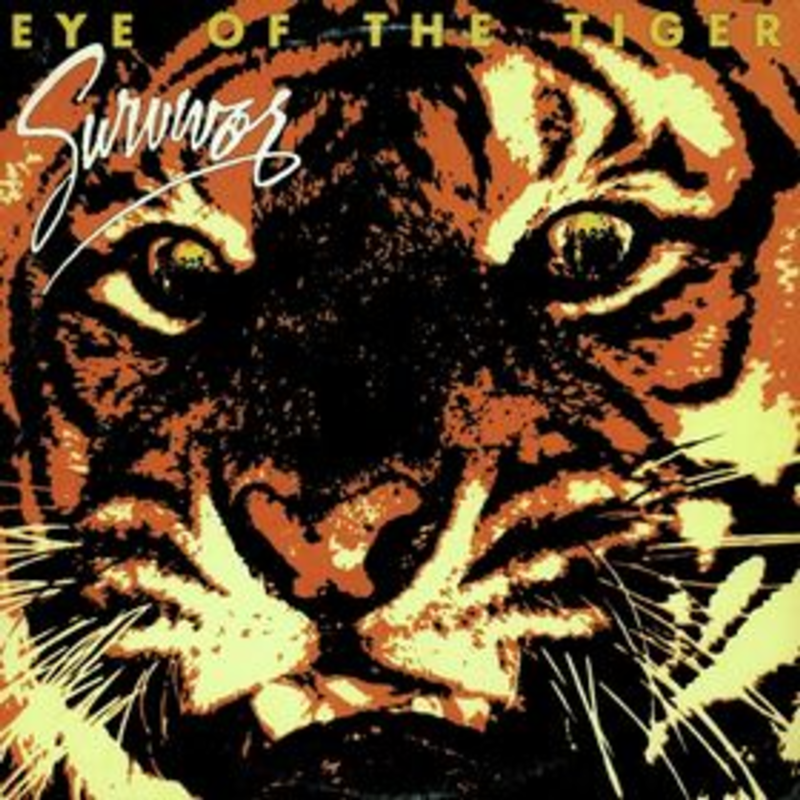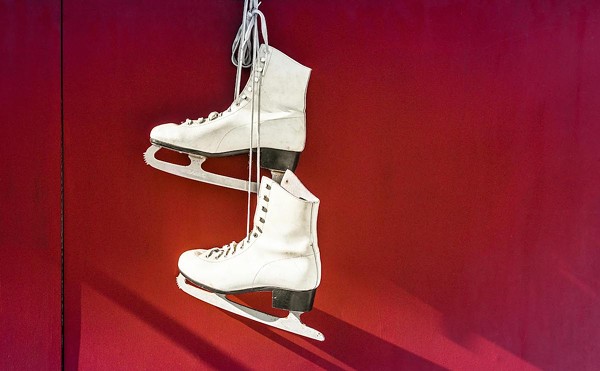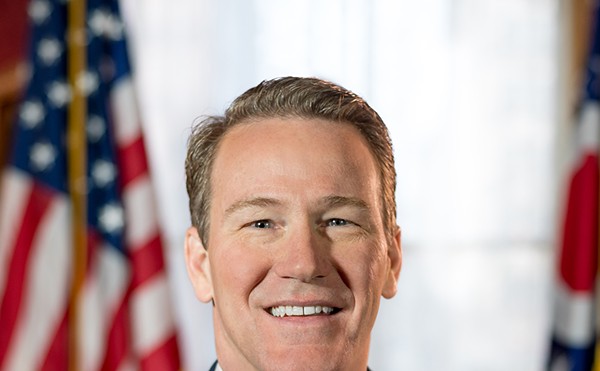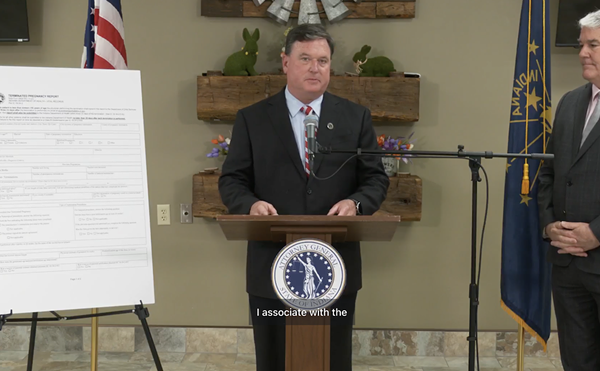There have been an increasing number of examples — especially in the past decade — of conservative politicians using songs in their campaigns by artists who do not want their music used in that way. Recently, a member of Survivor who owns the copyright for the Rocky III anthem, "Eye of the Tiger," asked Newt Gingrich to stop using the song at rallies (the problem being that not only is the song being used in public, but it also ends up soundtracking YouTube clips from the same rally and lives on eternally on the web). Likewise, British Funk/Rock band The Heavy freaked when Newt's people blared their "How You Like Me Now?" hit to rile up supporters.
It almost seems like these occurrences happen on a weekly basis now. Usually, when asked to cease use, the politicians' campaigns comply immediately. But, with it happening so frequently, wouldn't a campaign manager be a little more aware of the music they're deciding to co-opt? And if a campaign refuses, are there really any legal ramifications? —-
The most common knee-jerk reaction from liberals is usually, "How dare they steal that song!" Most people assume a campaign is violating copyright laws (something members of both parties lobby against in their official capacities), but, anymore, that is not always the case. A candidate often pays for a blanket license that allows them to use songs as they please. The trouble campaigns run into, according to a recent piece from The New York Times, is creating the appearance that a songwriter/performer actually endorses the candidate, leaving the campaign open to lawsuits over "deceptive advertising."
What happens sometimes, according to the Times report, is that campaigns just hope no one notices. In the Times piece, copyright lawyer Lawrence Iser said that, "Because nobody sued, the candidates always thought they could get away with it," adding that, at worse, the campaign would receive a "takedown letter" and stop using the song, scoring some free publicity along the way.
Iser's cases representing Jackson Browne and David Byrne of Talking Heads over campaigns' music usage were successful, leading to the politicians paying damages. Those suits against John McCain (who Browne sued in 2008) and Charlie Crist (who Byrne sued) are deemed a turning port. It might just take artists filing lawsuits regardless of whether the politician "cease and desists." Survivor's Frankie Sullivan is doing just that with his suit over Gingrich and Co. copping "Eye of the Tiger."
Maybe it will take more of those huge payouts before campaigns put as much thought into their musical choices as they do their soundbites.
But it keeps happening, frequently. Is it arrogance? A morality issue? Apathy? Stupidity?
It's more clear and obvious than ever that artists will sue. So why won't the conservative campaigns stop?
Simple. It's more of the proverbial "red meat," more Karlrovian wedge-issuing than "Whoops, I did it again." The conservative base gets fired up over religious issues (abortion, gay marriage, contraception, etc.). But being attacked by liberal "artists" (the worse kind of liberal outside of ones that live in Hollywood) who should keep their misguided politics to themselves and shut up and perform like monkeys? That's a conservative version of getting pumped up for a football game by cranking "Welcome to the Jungle."
As the great "War on Christmas" showed, if conservatives can caricaturize Pop and Rock musicians as a bunch of idealistic hippies/commies/lowlifes "attacking" the sacred values "this country was built on," then their voting base will be satiated (at least until something better — like a goddamn union protecting the rights of fancy teachers and auto workers — comes along). Though it might not sway many "undecideds," it might push at least a few conservative citizens who were on the fence about even voting this year to do whatever they can to get to the polls and cast their ballot.
You can hear it in the silence of the candidates after they've been "busted" for their musical misappropriations. With the notable exception of Crist (who posted this YouTube apology in response to the Byrne case), how many times have you heard or read a politician respond to a rant, cease-and-desist-order or lawsuit by a pissed-off liberal musician? Not even a "My bad."
It's a useful, relatively new chapter in the Republican playbook, especially effective when the artist whose song is "borrowed" is clearly not on their side. I find it difficult to believe that no one in a huge presidential campaign would be aware that playing a song by Jackson "No Nukes" Browne — or Don Henley or the Wilson sisters from Heart — would cause those not-shy-about-politics performers to strike back and make a big fuss. The politicians can just sit back and let those lawsuits and public rants serve as campaign commercials.
It's a dick move, for sure, but one that reeks of those conservative "evil genius" tactics that Karl Rove perfected, if on a surprisingly more subtle level. Perhaps most surprising — it's actually somewhat clever and amusing.
But not quite as clever as a certain liberal comedian's response, as it turns out. Stephen Colbert (already the creator of one of the great "public prank as political statement" moments in U.S. history with his ongoing Colbert Super Pac gag) recently had Sullivan on his Colbert Report show, where the ex-Survivor member sang passages from one of Gingrich's many copyright-protected books (without permission). Check it out below, along with a few other moments in the history of campaign fight-song use (or "misuse," as it were).
| The Colbert Report | Mon - Thurs 11:30pm / 10:30c | |||
| Indecision 2012 - Survivor Sues Newt Gingrich - Dave Bickler | ||||
|
||||
Like people who play The Police's stalker anthem "Every Breath You Take" at their weddings, conservatives were giddy over Bruce Springsteen's "patriotic anthem," "Born in the U.S.A.," clearly not paying attention to any lyrics not printed in the title. Ronald Reagan's campaign glommed onto the song and Springsteen, referencing both during stump speeches and even reportedly seeking The Boss' endorsement (denied, of course). Though outside of the legal realm of today's "misunderstandings," it was a great, contemporary example of a conservative misrepresenting a very liberal song. (Springsteen gave the John Kerry campaign "No Surrender" to use in 2004.)
Tom Petty has plenty of experience in this field. He got George W. Bush to "cease and desist" use of his "I Won't Back Down" at rallies and just last year he did the same to Michele Bachmann's campaign for their use of "American Girl." He told both, "Don't come around here no more." (Insert rimshot) Conservatives cried foul, saying Petty didn't seem to mind Hillary Clinton's campaign using the same song. Uh, duh?
Here's the song that had Jackson Browne hopping-mad at John McCain during the presidential campaign in 2008. McCain used the song in a commercial and Browne won his copyright violation lawsuit.
It isn't always standard Pop stars who get upset over such matters. Michael Palin and Terry Jones of Brit comedy sketch legends Monty Python complained about Chris Christie's use in 2009 of their material without any permission whatsoever. (He took it down following the complaints.)
John Hall from slightly popular ’70s band Orleans was inspired to go into politics after he heard his song "Still the One" used during George W. Bush's campaign without approval. Bush stopped using the song, but still won the 2004 election. Hall then ran for Congress and won. Then John McCain used the song in his own presidential campaign, a clear middle-finger salute to Hall. (McCain lost.)
Mitt Romney's campaign found a song with the words "Wavin'" and "Flag" in it and decided that would be a good one to play at a rally, because conservatives love flags. And wavin' them. Alas, the writer of "Wavin' Flag," Somali-born MC K'Naan, has somewhat differing political views. K'Naan told the Times he received tons of messages about his supposed "endorsement," leading him to ask that the song not be used (so far, Romney's camp has complied). "I'm for immigrants," K'Naan told the paper. "I'm for poor people and they don't seem to be what he's endorsing. My song being his victory song doesn't seem quite right."
Sarah "Barracuda" Palin used the Heart song "Barracuda" (her nickname, apparently, due to her tenacity on the basketball court) when she appeared at the 2008 Republican National Convention. The Wilson sisters objected … and the McCain/Palin camp kept using the song because they had a blanket license to do so. The former Heart guitarist who cowrote the song, Roger Fisher, told Reuters he didn't mind as much — and promised to donate any royalties from the campaign's use to their competition (who, by the way, won).
My favorite stories about this issue are the ones where the shoe is on the other foot. They show a different approach by liberal politicians when confronted by an artist unhappy to have their work used in a political setting. Cyndi Lauper recently became upset that her song "True Colors" (which she has used for pro-gay rights purposes previously) was being used by Democrats to attack Mitt Romney. Lauper wasn't mad about the politics of the situation; her problem was artistic. She just didn't want her uplifting song used in that negative context. The ad was immediately pulled.
Likewise, when now-President Barrack Obama's 2008 campaign was playing Sam & Dave's "Hold On, I'm Comin' " at rallies, Sam Moore sent a letter to Obama's camp asking that they stop. Conservatives used the moment to jump up and down and scream, "See! Obama steals, too!" But the tone of the letter — in which Moore reportedly declared his delight that a black man might soon be president — was different from the other missives. Moore simply felt his political views were a private matter. And the Obama camp immediately complied.






